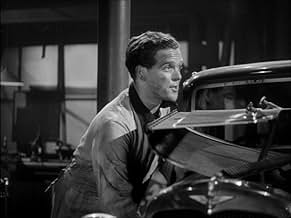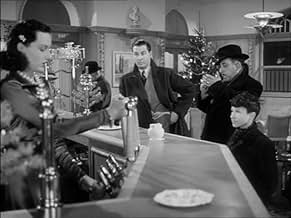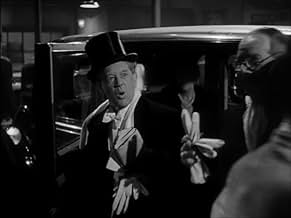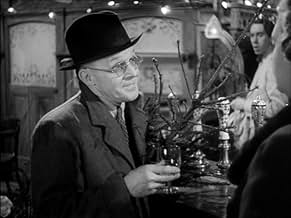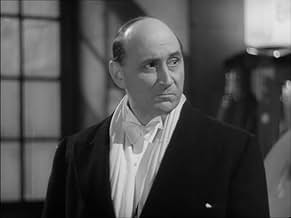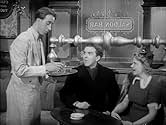Against Christmas backdrop, pub regulars led by bookie Joe Harris try to prove Eddie Graves' innocence before his scheduled execution for murder the next morning, as landlord awaits new baby... Read allAgainst Christmas backdrop, pub regulars led by bookie Joe Harris try to prove Eddie Graves' innocence before his scheduled execution for murder the next morning, as landlord awaits new baby.Against Christmas backdrop, pub regulars led by bookie Joe Harris try to prove Eddie Graves' innocence before his scheduled execution for murder the next morning, as landlord awaits new baby.
- Director
- Writers
- Stars
O.B. Clarence
- Sir Archibald
- (as O. B. Clarence)
- Director
- Writers
- All cast & crew
- Production, box office & more at IMDbPro
Featured reviews
That it was directed by Walter Forde and starred Gordon Harker led me to expect a comedy, and it's certainly played with tongue in cheek, as well as frequently earthy touches (the plot nonchalantly throwing in both prostitution and bigamy).
Obviously based on a play, it never leaves the studio, but the material is lively enough (and atmospherically photographed by Ronald Neame) for it not to matter.
The fact that the plot depends upon the novelty value of pound notes dates it (as does the barrel organ heard outside on the street); while the murder itself recalls the Oscar Slater case of 1908. Amidst the large cast, Harker, Mervyn Johns, Eliot Makeham and Felix Aylmer were plainly never young. But the film's age is also signalled by the extreme youth of Martin Clunes' father Alec (who died fifty years ago), Roddy McDowall popping up under an umbrella as a little boy singing carols; and Mavis Villers, still propping up a bar over twenty years later in 'Victim'.
Obviously based on a play, it never leaves the studio, but the material is lively enough (and atmospherically photographed by Ronald Neame) for it not to matter.
The fact that the plot depends upon the novelty value of pound notes dates it (as does the barrel organ heard outside on the street); while the murder itself recalls the Oscar Slater case of 1908. Amidst the large cast, Harker, Mervyn Johns, Eliot Makeham and Felix Aylmer were plainly never young. But the film's age is also signalled by the extreme youth of Martin Clunes' father Alec (who died fifty years ago), Roddy McDowall popping up under an umbrella as a little boy singing carols; and Mavis Villers, still propping up a bar over twenty years later in 'Victim'.
This is a thoroughly enjoyable film, compulsive viewing for all who might enjoy drinking in the pre-War atmosphere of London in 1939 and early 1940 just before the Blitz. The film is based on a stage play, a kind of early 'Mousetrap' concept, a whodunnit essentially taking place in a single set. The atmosphere of this saloon bar, where the main characters congregate, is brilliantly conveyed. The film is stuffed full of delightful character actors all doing a great job. The film is well directed by Walter Forde, an experience old-timer, two of whose better known films are 'Rome Express' (1932) and 'Bulldog Jack' (1935). This is quintessentially English, and since things which are quintessentially English barely exist any more, the film has thus become an invaluable archaeological artifact. The film may not be 'multi-cultural', but it is certainly 'multi-social', as every class of society participates in the action and interacts in a manner which will be fascinating to social historians. My wife and I, as old friends of Judy Campbell, were delighted to see her performance in this classic as 'Doris of the Shakespeare', at which she thoroughly excelled as a rather embittered young barmaid from a rival pub. The lead character is an extroverted bookie, played by Gordon Harker, who takes the lead in trying to clear a friend of a murder charge for which he will be executed on the following morning. The condemned man's girlfriend, another barmaid, is played by Elizabeth Allan. She is far less charming than Judy. I sat next to her a couple of times at dinner when she was an old lady and found her vanity really too much to take. It shows in this film. Mervyn Johns is terribly funny in this film, glum and solemn as he sits on 'his stool' and will not get off it for any reason, making wry comments throughout all the action. While everything else is happening, a baby is being born, some scruffy kids are singing Christmas carols (12 year-old Roddy MacDowell amongst them), there is a parody of a feather-headed chorus girl ('he behaved like a perfect gentleman, he took his hands away as soon as I asked him'), and any number of amusing characters and incidents. What happens about the whodunnit aspects must remain a secret, but does not disappoint. This film is a real joy, and should be reissued on DVD so that people can see it.
This film is based on a stage play but doesn't fall into the traps of adaptation. It is neither static not slow moving.
The film was made by the husband and wife team of Walter and Culley Forde. Very rare for a woman to be in such a position in those days.
A very experienced cast is a great help. Felix Aylmer in a very brief role. Martin Clunes father,Alec,plays the convicted murderer. One of my favourites,Gordon Harker,plays the lead role of a bookie trying to clear the convicted murderer before the following mornings execution. Mervyn John's is propped up in his corner giving forth with often inappropriate sayings.
A first class thriller.
The film was made by the husband and wife team of Walter and Culley Forde. Very rare for a woman to be in such a position in those days.
A very experienced cast is a great help. Felix Aylmer in a very brief role. Martin Clunes father,Alec,plays the convicted murderer. One of my favourites,Gordon Harker,plays the lead role of a bookie trying to clear the convicted murderer before the following mornings execution. Mervyn John's is propped up in his corner giving forth with often inappropriate sayings.
A first class thriller.
This is probably the greatest film, set entirely inside a pub, ever made (admittedly a small field). The interest is not on the whodunit plot, and certainly not on the plausibility of the premise that the regulars in a pub could solve a mystery in a single night before closing time. But the combination of a group of vintage character actors doing their stuff, in a setting dripping with nostalgic possibilities, is irresistible. Mervyn Johns at his most lugubrious, spending virtually the entire picture on a barstool; Gordon Harker as a bumptious bookie; Roddy Hughes as a vague, cheery doctor; a wonderfully characterised set of bar staff; a hilarious group of cheeky carol singers (including the young Roddy McDowall). The film gives a tremendous sense of the small communities in the middle of London in the immediate pre-war, and the transient populations of rich and poor alike who might wander through. The historians and sociologists can detect the wartime social solidarity about to break down; those who lived through the times can enjoy the nostalgia. Warm, funny and brilliantly realised.
British character actors at their best. The wonderful Gordon Harker stands out as usual but there isn't a weak link in the cast. The story is okay but doesn't matter that much, it's all about the atmosphere and the cast. A real comedy drama with the accent on the comedy. Why don't the make films like this any more and thank you Talking Pictures for making so many available.
Did you know
- TriviaWhen the men are talking about bicycling, one of them asks another if he has been up to Herne Hill lately. This is a reference to the velodrome in that South London neighborhood, which is still operating.
- ConnectionsReferences George Robey's Day Off (1918)
- How long is Saloon Bar?Powered by Alexa
Details
- Runtime
- 1h 16m(76 min)
- Color
- Sound mix
- Aspect ratio
- 1.37 : 1
Contribute to this page
Suggest an edit or add missing content


